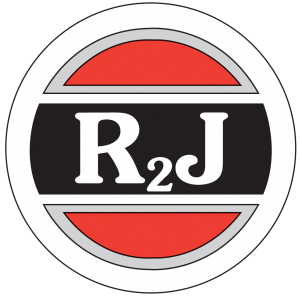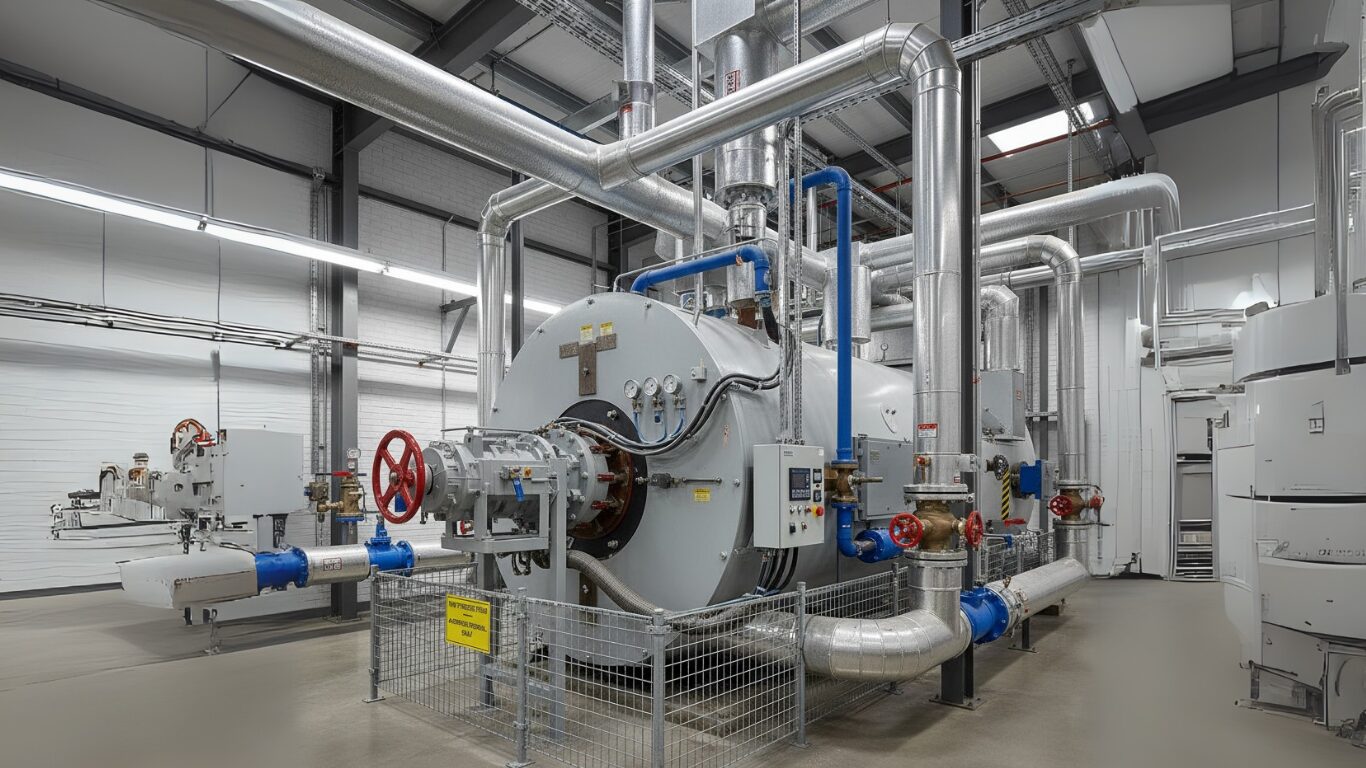Boiler Maintenance for Industrial and Commercial Systems
Sep 20, 2023Boilers are critical to many commercial and industrial operations, providing steam and hot water for heating, power generation, and essential processes. Because they operate under demanding conditions, consistent boiler maintenance is necessary to keep them safe, reliable, and efficient.
Unlike residential units, commercial and industrial boilers are built to handle heavier loads and longer run times. That means if you let maintenance slip, the risks are bigger too. Breakdowns, safety hazards, and costly downtime are all more likely without a proper program in place.
In this article, we will help you understand the key aspects of proper boiler maintenance. From common issues to preventive practices and professional support, our goal is to provide practical guidance for keeping boiler systems dependable and cost effective.
Why Boiler Maintenance Matters
1. Efficiency and Cost Savings
When scale, sludge, or corrosion build up, they reduce heat transfer and force the boiler to use more fuel for the same output. This not only lowers the boiler’s efficiency but also drives up operating costs. Partnering with experts in water treatment services helps prevent these issues. A clean, properly maintained boiler supports energy efficiency, providing measurable cost savings over time.
2. Safety and Reliability
Because a boiler is a pressurized system, even small issues, such as irregular boiler pressure, faulty safety valves, or malfunctioning burner controls, can compromise safety. A structured boiler maintenance program and routine inspections help ensure safe operation while reducing unplanned downtime.
3. Longer Equipment Lifespan
Preventive maintenance protects critical components, minimizes repair costs, and helps facilities avoid system failures. With a consistent boiler preventive maintenance checklist, facilities extend the lifespan of their equipment compared to those relying only on emergency boiler repair service.
Common Issues Addressed by Boiler Maintenance
In our experience, most boiler problems start small. The key is catching them early before they snowball into bigger, costlier repairs. Here are the most frequent issues your team should watch for:
Scale, Sludge, and Corrosion
Water chemistry directly affects boiler performance. Over time, minerals and impurities in boiler water form scale, corrode metal, or settle into sludge. These problems insulate the heat transfer surfaces, trap air, and create hot spots on the heat exchanger. The result is wasted energy, damaged components, and a shorter system lifespan. Consistent water treatment and cleaning go a long way in avoiding these issues. If you’d like to see how treatment strategies make a difference, check out our guide on preventing corrosion in boilers through water treatment.
Pressure and Water Level Issues
Safe operation depends on stable pressure and proper water levels. If the water level glass gauge shows low water, the boiler can overheat. If the pressure climbs too high, system valves and safety valves are put under strain. Teams should regularly check the pressure gauge, LWCO, and operating controls to make sure everything is working as intended.
Burner and Combustion Problems
The burner is where efficiency lives or dies. Problems with burner controls, oil pressure, or the flame itself often lead to wasted fuel and higher emissions. We recommend checking fuel oil levels, confirming there’s a steady supply of fresh air for combustion, and inspecting the burner refractory material. These small steps keep the burner operating efficiently.
Leaks and Noises
Most operators can tell something is wrong when they hear it. Hissing, banging, or vibration noises in the boiler room usually signal leaks, trapped air, or faulty connections. Don’t ignore them. They are often early warnings of bigger problems. For a deeper look at this, see our guide on addressing noises in your commercial boiler system.
Flue Gas and Venting Concerns
Venting systems are critical for both safety and compliance. Blocked or corroded flue gas piping can push dangerous gases back into the facility. Make sure venting pathways are inspected regularly and kept clear.
Quick Reference: Issues to Watch for During Inspections
Facility teams and operators should keep an eye out for early warning signs of boiler problems. During routine maintenance, check for:
- Scale buildup, corrosion, or sludge inside the boiler
- Irregular readings on the pressure gauge or water level glass gauge
- Weak, unstable, or discolored burner flame
- Low or inconsistent fuel oil levels
- Leaking water, steam loss, or unusual noises in the boiler room
- Blocked or damaged flue gas vent piping or combustion air piping
- Excessive vibration or hot spots on the heat exchanger
- Loose electrical connections or faulty operating controls
Catching these issues early through preventive maintenance helps avoid system failures, improves efficiency, and ensures safe operation.
Boiler Preventive Maintenance Checklist
A structured boiler preventive maintenance checklist is essential for keeping commercial and industrial systems safe, efficient, and reliable. By following a consistent schedule, facility managers can reduce downtime, extend equipment life, and avoid costly repairs. Below is a breakdown of daily, periodic, and annual maintenance practices that should be part of any boiler maintenance program.
Daily Maintenance Tasks
- Check water levels: Ensure the water level glass gauge is at the proper level and that the low-water cutoff (LWCO) functions correctly.
- Monitor boiler pressure: Review the pressure gauge to confirm the system remains within the recommended range.
- Observe burner flame: Inspect the flame for stability and proper color, which indicate efficient combustion.
- Check fuel oil levels: Verify that fuel supplies are sufficient and consistent with demand.
- Inspect for leaks: Look for signs of leaking water, steam, or fuel in and around the boiler room.
- Listen for unusual noises: Be alert to vibrations, knocking, or other abnormal sounds that may signal mechanical issues.
Weekly and Monthly Maintenance
Tasks like testing safety valves and checking combustion air piping help confirm safe, reliable operation. Another essential step is blowing down the water column and LWCO, which prevents sludge buildup and inaccurate readings. For more detail, see our breakdown of boiler blowdown best practices.
Other checks during this interval include:
- Inspecting system valves for leaks, corrosion, or wear
- Cleaning air filters to maintain proper airflow for combustion and ventilation
Quarterly and Semi-Annual Maintenance
- Inspect burner refractory material: Look for cracks, erosion, or damage that could impact performance.
- Examine electrical connections: Tighten or replace loose wiring that may affect operating controls.
- Review boiler water treatment program: Adjust chemicals and treatment processes to prevent corrosion, scale, and sludge.
- Check flue gas vent piping: Inspect for blockages, corrosion, or leaks in the venting system.
- Test operating controls: Ensure pressure controls, temperature sensors, and other monitoring devices are working properly.
Annual Maintenance
An annual maintenance program performed by a qualified technician is essential to verify the boiler’s overall safety and efficiency. Annual tasks typically include:
- Performing a hydro test boiler inspection to confirm pressure vessel integrity.
- Cleaning the fire side and heat exchanger to remove soot, scale, or debris.
- Inspecting critical components such as burners, refractory, and safety valves.
- Checking for hot spots, corrosion, or other signs of wear inside the boiler.
- Reviewing the owner’s manual to ensure compliance with manufacturer recommendations.
- Confirming all replacement parts are working properly and available as needed.
Why a Checklist Matters
Following a maintenance checklist ensures that no step is overlooked. It creates a consistent, reliable routine that minimizes risk, reduces repair costs, and keeps the boiler operating at peak efficiency throughout its service life.
Safety and Compliance Considerations
Safety is central to proper maintenance. Failing to test safety valves, inspect operating controls, or verify system valves puts both personnel and operations at risk.
Compliance is equally important. Many facilities must meet local inspection requirements and provide documentation of maintenance and periodic maintenance activities. Services such as Legionella compliance help ensure hot water systems remain safe for occupants.
Medical Facility Considerations: ANSI/AAMI ST108:2023
If your facility supports medical or surgical operations, there is a standard you should know: ANSI/AAMI ST108:2023, Water for the Processing of Medical Devices. This standard outlines stricter requirements for water quality, monitoring, and system validation in sterilization and instrument processing settings.
Because boilers may produce steam that’s used for sterilization or as part of a closed-loop system, your boiler operations must ensure that the steam or condensate meets purity criteria. ST108 requires that water used in medical device processing be free from contaminants that could harm patient safety or degrade instruments.
If you want to explore the details of ST108 and how it may affect your steam systems, you can refer to the ANSI blog post here: ANSI/AAMI ST108: Water for the Processing of Medical Devices.
Building a Complete Boiler Maintenance Program
Daily and weekly checks can be handled in-house, but a complete program usually calls for professional support. The most reliable programs balance hands-on inspection with strong water treatment practices and guidance from trained technicians.
The strongest programs we’ve seen include:
- Regular testing of boiler water chemistry.
- Customized treatment to prevent corrosion, scale, and heat loss.
- On-site support from qualified technicians.
- Integration with a preventive maintenance checklist to make sure nothing slips through the cracks.
Need guidance on building a stronger maintenance plan? Talk to our boiler maintenance experts and we will help you tailor a program that improves efficiency, extends equipment life, and keeps your facility safe.
Frequently Asked Questions (FAQs)
What does a boiler maintenance checklist include?
It covers daily, periodic, and annual tasks, such as monitoring the pressure gauge, testing the LWCO, inspecting system valves, checking air filters, and reviewing operating controls.
How often should annual maintenance be performed?
A qualified technician should complete annual maintenance, including a hydro test boiler inspection, fire side cleaning, safety valve testing, and review of the owner’s manual.
What are warning signs of boiler issues?
Look for leaking water, uneven steam pressure or water pressure, hot spots, or failure to heat water properly. Unusual noises and corrosion are also signs of poor performance.
Why is water treatment important for boiler operations?
It prevents scale, sludge, and corrosion, ensuring the boiler operates efficiently. Proper treatment reduces repair costs and supports cost effective, safe operation.
How does professional boiler maintenance differ from routine in-house checks?
While facility staff can handle daily tasks like checking water levels or monitoring boiler pressure, a qualified technician performs in-depth inspections. These include combustion analysis, electrical connection testing, inspecting critical components like the heat exchanger, and verifying safety valves. Professional support helps prevent costly repairs and ensures compliance with safety standards.


